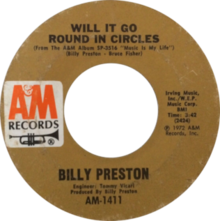
Tres Hombres is the third studio album by the American rock band ZZ Top, released on July 26, 1973 by London Records. It was the band's first collaboration with engineer Terry Manning. The album would be ZZ Top's commercial breakthrough in the United States charts. It peaked at number 8 on the Billboard 200 albums chart in 1974. Its lead single "La Grange" reached number 41 on the Billboard Hot 100. It is the first of many ZZ Top albums to incorporate the use of Spanish terminology in their branding. "Tres Hombres" means "three men" in Spanish.
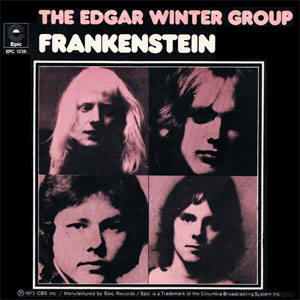
"Frankenstein" is an instrumental track by the American rock band Edgar Winter Group that was featured in the 1972 album They Only Come Out at Night and additionally released as a single.
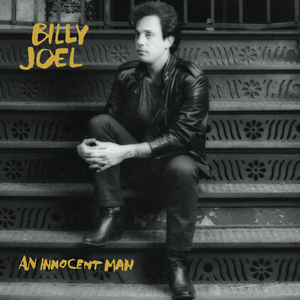
An Innocent Man is the ninth studio album by American singer-songwriter Billy Joel, released on August 8, 1983. The concept album is a tribute to the American popular music of Joel's adolescent years with Joel paying homage to a number of different and popular American musical styles from the late 1950s and early 1960s, most notably doo-wop and soul music. The album cover artwork was taken on the front steps of 142 Mercer Street, just north of the intersection of Mercer and Prince Street in the SoHo neighborhood of Manhattan, New York City.

Tower of Power is an American R&B and funk based band and horn section, originating in Oakland, California, that has been performing since 1968. There have been a number of lead vocalists, the best-known being Lenny Williams, who fronted the band between early 1973 and late 1974, the period of their greatest commercial success. They have had eight songs on the Billboard Hot 100; their highest-charting songs include "You're Still a Young Man", "So Very Hard to Go", "What Is Hip?", and "Don't Change Horses ".

"Superstition" is a song by American singer-songwriter Stevie Wonder. It was released on October 24, 1972, as the lead single from his fifteenth studio album, Talking Book (1972), by Tamla. The lyrics describe popular superstitions and their negative effects.

The Bar-Kays are an American funk band formed in 1964. The band had dozens of charting singles from the 1960s to the 1980s, including "Soul Finger" in 1967, "Son of Shaft" in 1972, and "Boogie Body Land" in 1980.
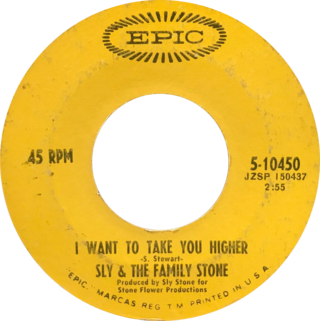
"I Want to Take You Higher" is a song by the soul/rock/funk band Sly and the Family Stone, the B-side to their Top 30 hit "Stand!". Unlike most of the other tracks on the Stand! album, "I Want to Take You Higher" is not a message song; instead, it is simply dedicated to music and the feeling one gets from music. Like nearly all of Sly & the Family Stone's songs, Sylvester "Sly Stone" Stewart was credited as the sole songwriter.
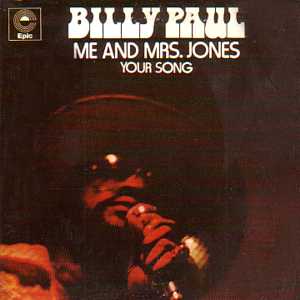
"Me and Mrs. Jones" is a 1972 soul song written by Kenny Gamble, Leon Huff, and Cary Gilbert, and originally recorded by Billy Paul. It describes an extramarital affair between a man and his lover, Mrs. Jones. In the song, the two meet in secret "every day at the same cafe", at 6:30, where they hold hands and talk. The two are caught in a quandary: "We got a thing going on/we both know that it's wrong/but it's much too strong/to let it go now."
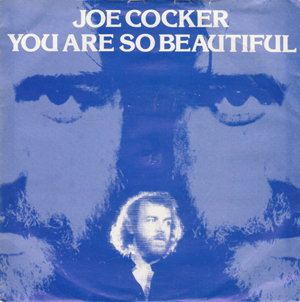
"You Are So Beautiful" is a song credited to Billy Preston and Bruce Fisher that was first released in 1974 on Preston's ninth studio album, The Kids & Me. It was also the B-side of his single "Struttin'". Later that same year, English singer Joe Cocker released a slower version of the song on his album I Can Stand a Little Rain. Cocker's version was produced by Jim Price, and released as a single in November 1974. It became Cocker's highest-charting solo hit in the United States, peaking at number five on the Billboard Hot 100, and at number four on Canada's Top Singles chart.

"You Can Call Me Al" is a song by American singer-songwriter Paul Simon. It was the lead single from his seventh studio album, Graceland (1986), released on Warner Bros. Records. Written by Simon, its lyrics follow an individual seemingly experiencing a midlife crisis. Its lyrics were partially inspired by Simon's trip to South Africa and experience with its culture. Released in July 1986, "You Can Call Me Al" became one of Simon's biggest solo hits, reaching the top five in seven countries.

"Kodachrome" is a song by the American singer-songwriter Paul Simon. It was the lead single from his third studio album, There Goes Rhymin' Simon (1973), released on Columbia Records. The song is named after Kodak's now-discontinued reversal film brand, Kodachrome.
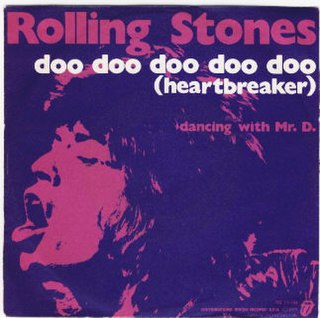
"Doo Doo Doo Doo Doo (Heartbreaker)" is the fourth track on the Rolling Stones' 1973 album Goats Head Soup.

"Tell It Like It Is" is a song written by George Davis and Lee Diamond and originally recorded and released in 1966 by Aaron Neville. In 2010, the song was ranked No. 391 on Rolling Stone magazine's list of The 500 Greatest Songs of All Time.

"Urgent" is a song by the British-American rock band Foreigner, and the first single from their album 4 in 1981.

"No Reply at All" is a song by the English rock band Genesis, released as the lead single in the US from their eleventh studio album, Abacab (1981). It was not released in the UK, where "Abacab" was the first single. The US single release edit omits the second verse of the song as it appears on the Abacab album.

"Grazing in the Grass" is an instrumental composed by Philemon Hou and first recorded by the South African trumpeter Hugh Masekela. Released in the United States as a single in 1968, it followed United States trumpeter Herb Alpert's vocal performance of "This Guy's in Love with You" to the top spot on the Hot 100 chart, ranking it as the 18th biggest hit of the year. The song also reached No. 15 Adult Contemporary. Masekela included the song in his albums Grazing in the Grass: The Best of Hugh Masekela (2001), Still Grazing (2004), and Live at the Market Theatre (2006).
Bo Donaldson and The Heywoods are an American pop music group, known mainly for their 1970s hit singles, "Billy Don't Be a Hero" and "Who Do You Think You Are".

"Nothing from Nothing" is a song written by Billy Preston and Bruce Fisher and recorded by Billy Preston for his 1974 album The Kids & Me. The song reached #1 on the Billboard Hot 100 chart for one week in October 1974, becoming Preston's second solo chart-topper in the United States. It spent four and a half months on the chart.

"Outa-Space" is an instrumental recorded by Billy Preston that originally appeared on his 1971 A&M Records-debut album, I Wrote a Simple Song. To create the primary instrumental sound, Preston played a clavinet through a wah wah pedal. The song was created by Preston improvising while calling out chord changes to the backing band. He later added organ and hand claps. Preston named the song "Outa-Space" for the instrumental's spacy sound.
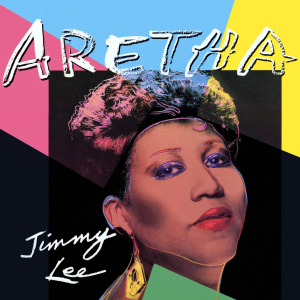
"Jimmy Lee" is a song written by Narada Michael Walden, Lisa Walden, Preston Glass, and Jeffrey Cohen for American singer Aretha Franklin, who recorded it for her 1986 album Aretha. Produced by Narada Michael Walden, the track was released as the lead single from the album in late 1986.
